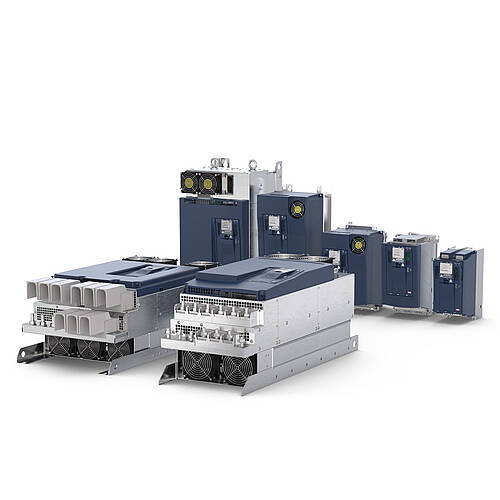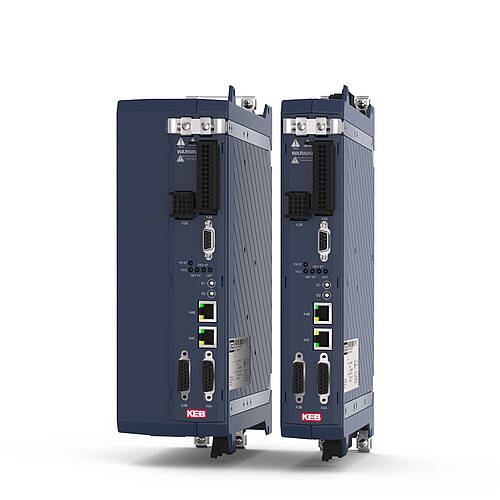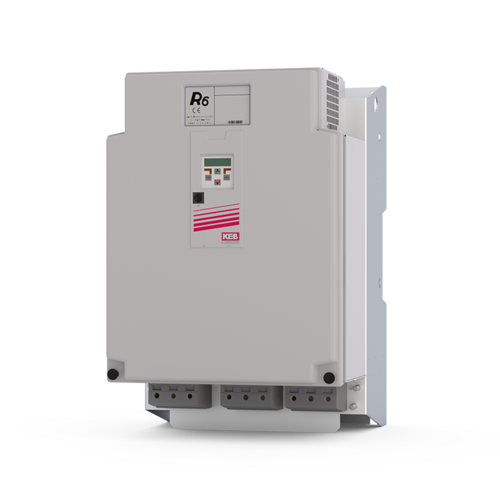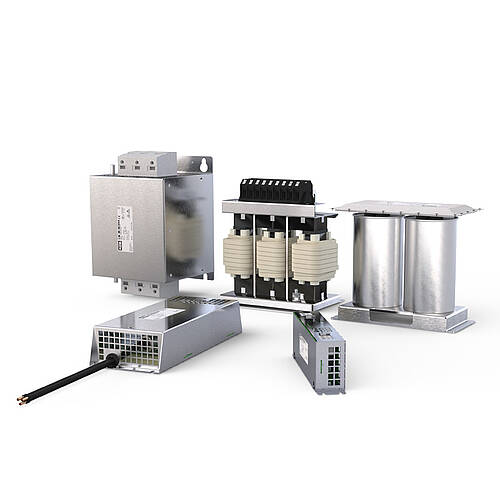Simon Riethmüller
HOMAG
Project Manager DC-INDUSTRIE2
DC-INDUSTRIE2
CONNECTED AT TWO POINTS
DC-INDUSTRIE2 was launched in autumn 2019 under the motto “Direct current for the factory of the future”, following on from the previous DC-INDUSTRIE research project. This focussed on the development and testing of power electronic devices for the supply and protection of DC networks in production cells.
Building on this, DC-INDUSTRIE2 focused on the development of a DC network for production halls to ensure a safe, robust and decentralised energy supply from renewable sources. DC-INDUSTRIE offers an open system that enables the efficient integration of renewable energies and lower energy consumption. The reduced feed-in power and higher system availability are also important advantages. The DC-INDUSTRIE2 project was successfully completed in 2023. The knowledge gained was taken up by the Open DC Alliance (ODCA), which was founded at the end of 2022, and further developed there. KEB Automation is a founding member of this working group initiated by ZVEI.
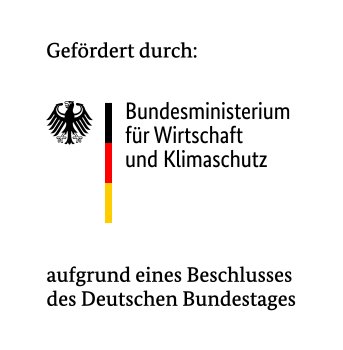
- 13 million euro project volume
- Funded by the Federal Ministry for Economic Affairs and Climate Protection
- 39 project partners from industry and research
- Around 140 engineers and researchers involved
- One of the largest collaborative research projects in Germany
Why DC?
DC technology plays a key role on the road to climate-neutral production – and offers various functional advantages. These include the fact that DC is characterised by a particular robustness against network disturbances compared to conventional AC technology. Thanks to lower conversion losses and direct energy exchange, a significantly better energy balance can be achieved. Sustainable energy sources such as photovoltaics or energy storage systems, which generate a direct voltage on their own, can be easily integrated into the supply network using DC technology. DC technology makes an important contribution to increasing resource efficiency, as it allows copper to be saved in the wiring of individual devices. Such potentials are made possible by the increased voltage, two instead of three active conductors, the elimination of displacement and distortion reactive power and the direct exchange of energy during braking processes.
KEB as a project partner for DC-INDUSTRIE2
In order to design an efficient DC network, users, research institutes and component manufacturers need to work together - from feed-in technology to drive and protection technology to connection technology. With this in mind, KEB has also contributed its expertise in DC systems and EMC to the DC-INDUSTRIE2 project. As part of the previous DC-INDUSTRIE project, KEB developed drive controller demonstrators that were used and evaluated in the INDUSTRIE2 project together with active infeed converters (AIC) from KEB, including EMC filter units, in the model systems. As part of DC-INDUSTRIE2, KEB was involved, for example, in solutions with which parallel-operated feed-in devices no longer necessarily have to be decoupled by heavy and inefficient isolating transformers, but instead achieve a correspondingly high common mode rejection using specially developed EMC filters.
DC technology “Made in Barntrup”
KEB develops system solutions consisting of AICs, drive controllers and suitable EMC filter solutions and uses them successfully at machine level. Textile machines, hoists, plastic injection moulding machines and intralogistics applications, among others, benefit from the DC supply implemented with KEB. KEB has been researching and developing filter technology for many years – always with the aim of further optimising the EMC of electric drives. The expertise in these areas was incorporated into the DC-INDUSTRIE and DC-INDUSTRIE2 research projects.

Frank Weber
Application Automation and Drives
KEB Services: DC supply
Drive technology
Technology
DC connections in intralogistics
KEB customers already use the direct connection of devices to the DC link in many dynamic tasks, such as lifting and travel drives in warehouse technology, in crane systems, for rotating tool drives in machining centres or also high-speed energy storage systems.


